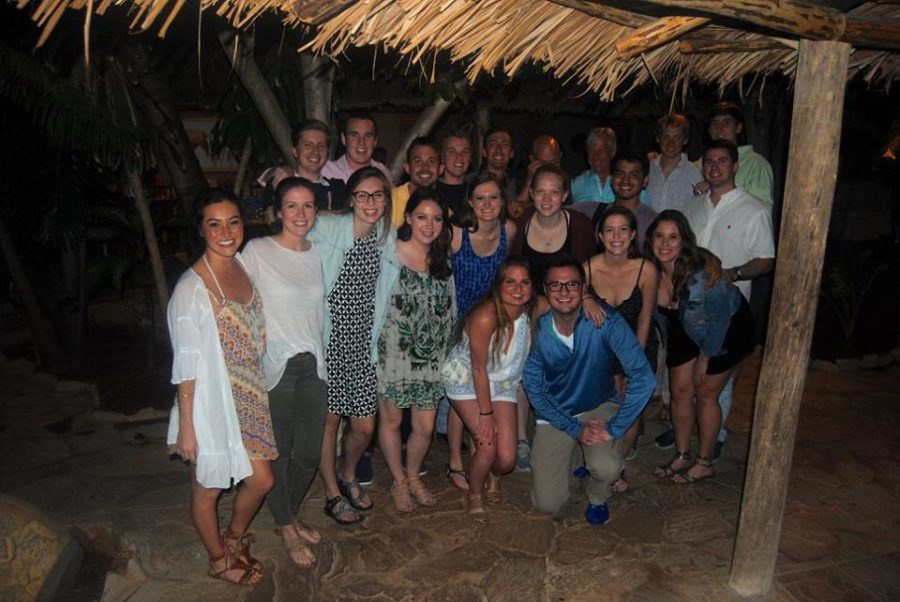A group of TCU business minors studying abroad in Cuba this January were captivated by the beautiful beaches and luscious landscape of the rarely visited country, but students said the apparent improving relations between the country and the U.S. is what made the trip truly unique.
The 10-day program that focuses on Cuba’s emerging economy started in 2015, but this year marked the first visit since the U.S. embassy reopened in Havana last August. Senior Ryan Flanagan said the history of tension between the U.S. and Cuba was not evident during their visit.
“I didn’t really think that it was possible, per se, to ever have good relations between the two countries,” Flanagan said. “But after visiting the country, you could tell that the Cuban people, the officials we talked to … the professors had no ill will towards us for being American.”
Junior Sarah Johnson said the lack of technological and industrial development in Cuba was more noticeable than the history of turmoil.
“If I hadn’t known before, I probably would not have noticed there were bad relations between the U.S. and Cuba,” Johnson said. “But I would’ve wondered why they didn’t have the advanced technology and cars we have.”
Just weeks after the students returned to TCU, President Barack Obama announced regulatory changes on Jan. 26 that would allow U.S. banks to directly finance exports allowed by the trade embargo with Cuba.
Junior Anna Johnson said the effect the embargo has had on the country was noticeable from the moment their plane landed in Cuba.
“I remember the first thing we saw after leaving the airport was a sign with Cuba with a noose around it,” Anna said. “It implied that because of the embargo, we’re killing Cuba.”
While it will take time to see the results of the more lenient trade rules, students said the trip showed them there is tangible hope for our relationship with Cuba to completely recover and the Cuban economy to progress.
“We cut off relations almost 60 years ago,” Flanagan said. “We’re almost 90 miles apart and have no contact. I think that’s ready to change.”
Correction: an earlier version of this article incorrectly attributed a quote. Ryan Flanagan also said, “We cut off relations almost 60 years ago…”




